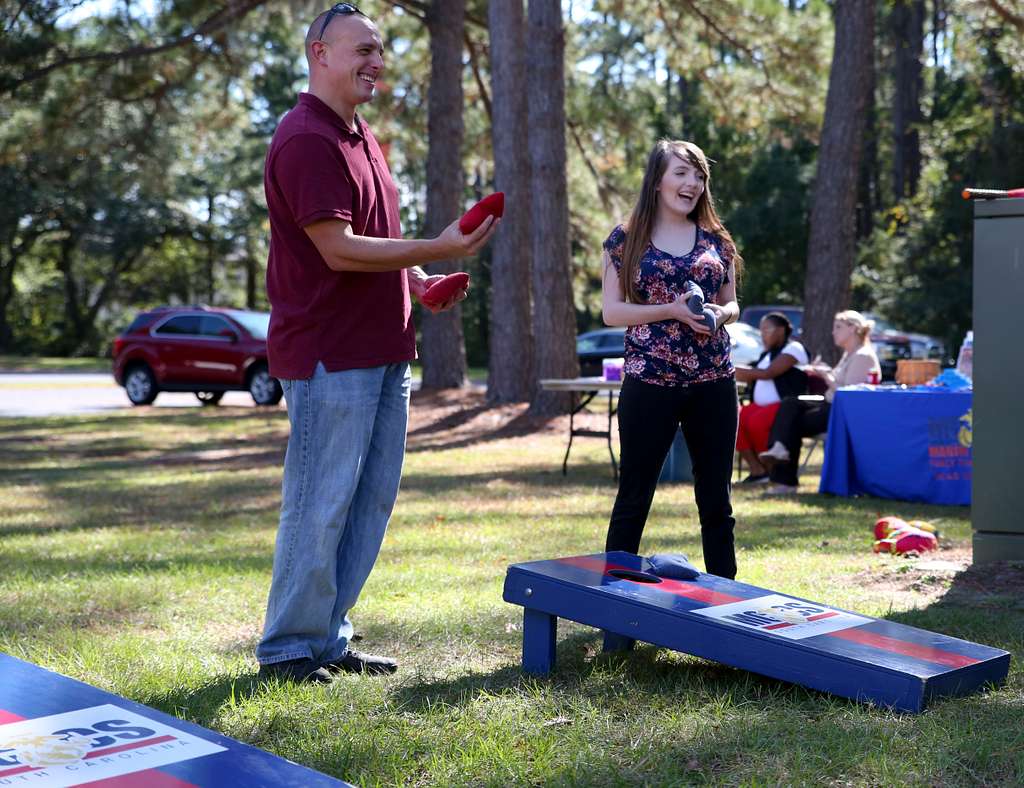You’ve finally done it—you’ve retired. No more alarm clocks, no more Monday meetings, no more pretending to care about Susan’s spreadsheet drama. But after the champagne toast and the first glorious week of sleeping in, reality starts to hit: now what? Retirement isn’t just one long vacation (sadly), and your money doesn’t magically stretch just because you’re “done working.” The first year is where most people stumble—spending too fast, forgetting about taxes, or realizing too late that Medicare doesn’t cover everything. Here are 15 costly mistakes people make in their first year of retirement—and how to avoid turning your dream life into a financial facepalm.
1. Spending Like You’re Still Earning A Paycheck

That first month of retirement feels like someone took the training wheels off your bank account and said, “Go wild.” Suddenly every day is a Saturday, and you’re tempted to treat yourself—to lunches out, spontaneous trips, a new golf membership, or three different streaming services (because, you know, time). But here’s the cold reality: you no longer have income replacing those purchases.
If you keep spending like you’re still getting biweekly deposits, you could burn through your nest egg faster than expected. Overspending early in retirement is one of the most common budget blunders—and the damage can compound fast. You might think, “Oh, I’ll adjust later,” but behavioral habits formed in year one are hard to undo. Track your spending for at least the first six months. See where your money’s actually going, then tweak accordingly. Think of it like budgeting with a tan.
2. Taking Social Security Too Early

We know it’s tempting—Social Security is right there, like a shiny red button with your name on it. But grabbing it at 62 instead of waiting can seriously shrink your monthly payout. The longer you wait (up to age 70), the more you get. And unless you need it right now to pay bills, cashing in too soon could cost you thousands over time.
According to The Motley Fool, one of the biggest regrets retirees have is taking Social Security too early without considering the long game. That smaller check adds up to a much smaller lifetime benefit, especially if you live longer than expected (and let’s be honest, we’re all trying to be that silver-haired yoga grandma). Run the numbers. Better yet, talk to a retirement planner. Delaying might not feel glamorous, but neither is running out of money at 82.
3. Underestimating Healthcare Costs

Spoiler: Medicare isn’t free, and it doesn’t cover everything. If you head into retirement thinking your medical expenses are magically handled, prepare for a rude—and expensive—awakening. Between premiums, out-of-pocket costs, supplemental plans, and long-term care, health expenses can become a budget bully.
Fidelity recently estimated that a 65-year-old couple retiring in 2023 will need roughly $315,000 to cover healthcare costs throughout retirement. Let that number sink in. Your wellness routine might need to include budgeting alongside yoga. Don’t skip supplemental insurance if you can afford it, and don’t ignore preventive care. A little planning now means fewer financial headaches (and literal ones) later.
4. Not Having a Withdrawal Strategy

You’ve got savings in a 401(k), a Roth IRA, maybe a pension, and a dusty old brokerage account—but now what? Without a clear withdrawal strategy, you could accidentally trigger tax bombs, reduce your Social Security benefits, or run your funds dry in the wrong order. There’s a method to the madness, and it’s called sequencing.
Taking money from the wrong accounts at the wrong time is one of the top planning mistakes retirees make. It’s like playing Jenga with your finances. Pull from taxable accounts first? Maybe. Delay Roth withdrawals? Possibly. The answer depends on your goals, tax bracket, and spending needs. Don’t wing it—consult a pro and build a plan. It’s not about how much you have, it’s about how you use it.
5. Moving Too Quickly Without Trying It First

We get the fantasy: day one of retirement hits and you’re packing up for Florida, Arizona, or a charming town called Somethingville. But uprooting your life based on a postcard version of a place can backfire—especially if it turns out you hate the humidity, miss your grandkids, or can’t stand the HOA.
One of the smartest things new retirees can do is test-drive their new location before committing. Spend a few months there during different seasons. Chat with locals. Rent before you buy. The goal is to avoid making a $300,000 mistake when you realize that “quiet” retirement town is actually just…boring. Your dream home shouldn’t become your biggest regret.
6. Ignoring Taxes On Retirement Income

You thought taxes were behind you once you waved goodbye to your W-2, right? Unfortunately, Uncle Sam’s still very much in the group chat. Many retirees forget that withdrawals from traditional 401(k)s, IRAs, and even portions of Social Security are taxable. That “free money” you’re pulling out? It’s often more like “heavily monitored money with strings attached.”
Without a tax strategy, you could easily bump yourself into a higher bracket without realizing it. That means higher Medicare premiums, fewer deductions, and a sad little surprise come April. It’s easy to overlook until you’re staring at a bill wondering where the refund went. Work with a financial advisor or tax pro to figure out how to keep your distributions tax-efficient. Because paying more taxes in retirement than you did while working? That’s the opposite of the dream.
7. Delaying Required Minimum Distributions (RMDs)

RMDs aren’t exactly a sexy retirement topic—but ignoring them can get expensive, fast. Starting at age 73 (or 75 depending on your birth year), the IRS requires you to start withdrawing a certain amount from your traditional retirement accounts each year. If you don’t? They hit you with a penalty that used to be 50% (yes, fifty), though it’s now a slightly less-scary 25%.
Still, that’s a hefty fine for money you already saved and paid taxes on once. A lot of retirees wait too long or forget entirely—especially if they don’t need the money right away. But the IRS doesn’t care about your savings plan; they care about their cut. Be proactive. Know when your RMDs kick in and how much you’re required to take. It’s not about spending it—just about moving it the right way.
8. Failing to Adjust Investment Risk

You’re no longer trying to “beat the market”—you’re trying to not lose your shirt. That’s why one of the most common mistakes is keeping your investment portfolio too aggressive after retirement. If you’re still riding high on risky stocks, one downturn could wipe out a big chunk of your savings when you need it most.
At the same time, going too conservative and sticking it all in cash means your money won’t keep up with inflation. It’s all about finding that post-retirement sweet spot. Rebalance your portfolio to match your new lifestyle and risk tolerance. A financial advisor can help you make that transition with less guesswork. Think of it like changing from sprinting to steady hiking—different pace, same direction.
9. Assuming Medicare Covers Long-Term Care

Here’s a plot twist no one loves: Medicare doesn’t cover most long-term care. Not the in-home support. Not the memory care. Not even the long-term nursing facilities after a certain point. A lot of retirees find this out after they need it—and by then, it’s a financial emergency.
Long-term care insurance isn’t cheap, but it might be worth it depending on your health, family history, and budget. If you don’t qualify or can’t afford it, at least start setting money aside specifically for this purpose. Talk to your family about a plan, because hoping for the best isn’t really a strategy. If long-term care becomes necessary, you don’t want to burn through your savings or burden loved ones. Planning ahead gives you options, control, and way less stress.
10. Underestimating the Emotional Impact of Retirement

This one doesn’t show up in a budget spreadsheet—but it can be just as disruptive. You go from a structured routine, a work identity, and coworkers who gossip about The Bachelor to… complete freedom. Sounds dreamy until it starts to feel like an existential crisis. Some retirees fill the void with travel or shopping—cue overspending. Others just feel adrift and start making reactive decisions.
The key? Create a purpose beyond work. Volunteer, start a hobby, join a club, take a class—do something. Without emotional planning, even the most financially-prepped retiree can spiral into bad habits. Retirement isn’t a vacation—it’s a new chapter that needs its own roadmap. Mental clarity = financial clarity.
11. Forgetting About Inflation

When you’re no longer earning, inflation suddenly becomes public enemy number one. A few percentage points might not seem like a big deal, but over 10, 20, or 30 years? It eats your budget alive. That $3 cup of coffee? Try $7 in a decade. And that monthly grocery bill you budgeted? It’s going to rise whether you like it or not.
Many retirees make the mistake of locking into a fixed-income lifestyle without planning for rising costs. That means they’re scraping by later in life—or returning to part-time work they didn’t plan for. Your retirement plan has to grow, even if your career doesn’t. Keep a portion of your portfolio invested in growth-oriented assets. Don’t let your money fall asleep on the job.
12. Ignoring Estate Planning

You’re retired, not immortal. Yet so many retirees skip over wills, powers of attorney, and healthcare directives because it’s “too soon.” Newsflash: it’s never too soon. If you don’t make a plan, the state will do it for you—and that plan usually involves courtrooms, delays, and drama.
Your estate documents should be updated, accessible, and shared with the people who need to know. This isn’t just about money—it’s about your health, your wishes, and your legacy. Don’t leave your family scrambling to guess what you would’ve wanted. The paperwork may not be fun, but peace of mind is. Retiring without an estate plan is like going on a road trip without a map.
13. Not Having a Plan for Your Time

Freedom is amazing—until it’s boring. That first month of retirement is a blissful whirlwind of naps, brunch, and Netflix. Then suddenly, you’re pacing the house wondering if 10 a.m. is too early for a second breakfast. Without a plan for your time, boredom leads to restlessness… and often, unplanned spending.
You don’t need to schedule every hour, but you do need structure. Create a routine that includes movement, creativity, connection, and rest. Join local groups, volunteer, travel, or even start a passion project. Your time is now yours—use it on purpose. A fulfilling retirement isn’t about doing nothing. It’s about doing the right things.
14. Relying Too Heavily on One Income Source

Diversification isn’t just for your investment portfolio—it’s for your income, too. Too many retirees lean on a single stream like Social Security or a pension, without having a backup plan. But if that income dips, gets delayed, or doesn’t stretch far enough? You’re stuck.
Smart retirees blend income from multiple sources—401(k)s, IRAs, rental income, part-time work, or even hobby businesses. It’s not just about money, either—it’s about flexibility. Having options means you’re not panicking if one income source underperforms. Think of it like a financial buffet: you want more than just one dish in front of you. Retirement is smoother when you’ve got more than one leg under the table.
15. Thinking You’ll Never Work Again

A lot of retirees say they’re done with work—until they realize they miss the structure, the social life, or just the sense of purpose. That’s totally valid. But the mistake? Not leaving space for that possibility. Some retirees get stuck thinking they’ve failed if they pick up a part-time job, when really, it’s just a new season.
Whether it’s consulting, dog-walking, mentoring, or running a cozy Etsy shop, working in retirement doesn’t mean you’re broke—it means you’re evolving. It can also help bridge budget gaps or give you a “fun fund” for travel or hobbies. Don’t lock yourself into an identity that says rest only. You’ve still got energy and value—and maybe some pretty solid dad jokes to share. Retirement isn’t the end of your working life—it’s just the remix.
This article is for informational purposes only and should not be construed as financial advice. Consult a financial professional before making investment or other financial decisions. The author and publisher make no warranties of any kind.








